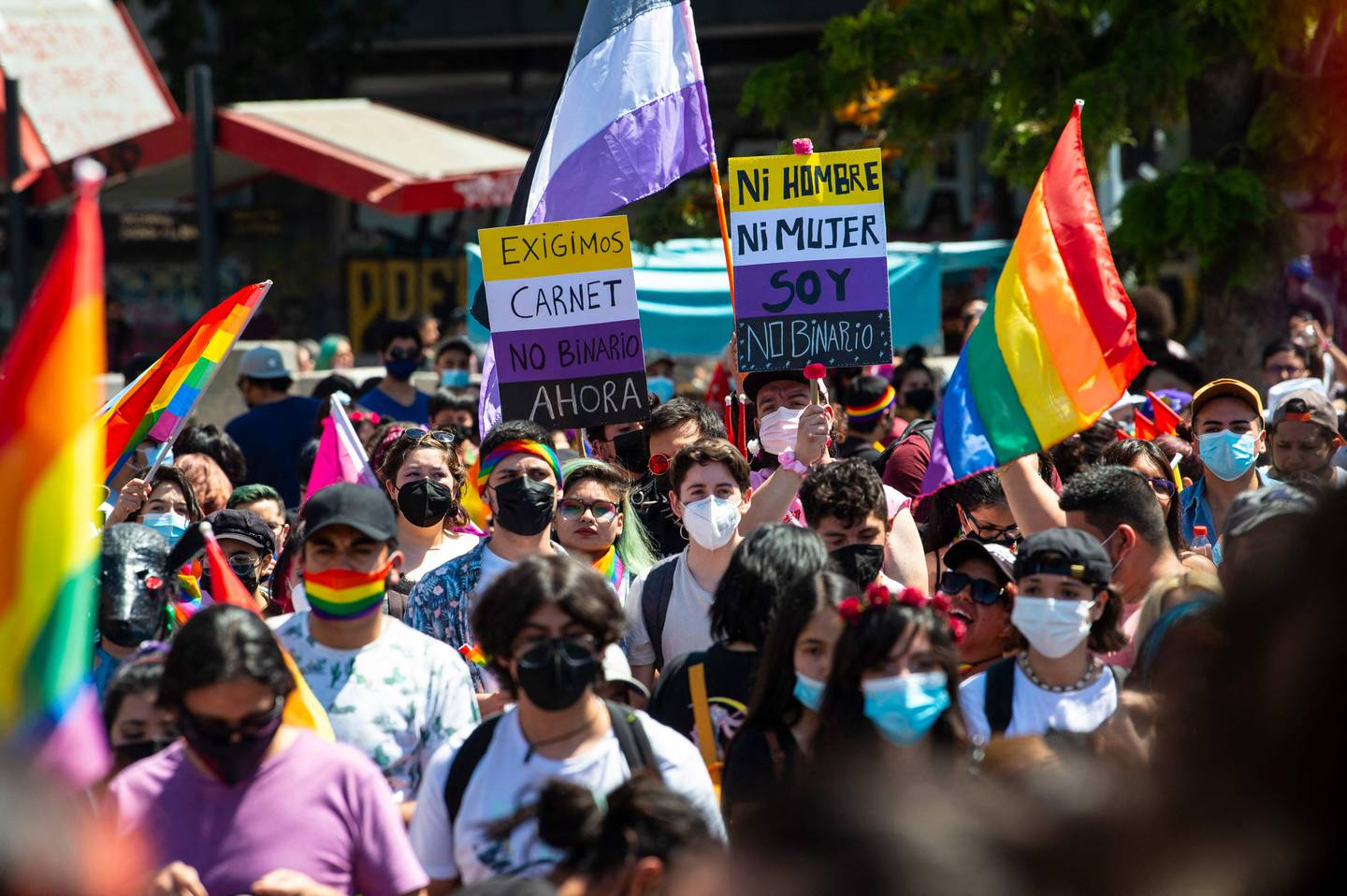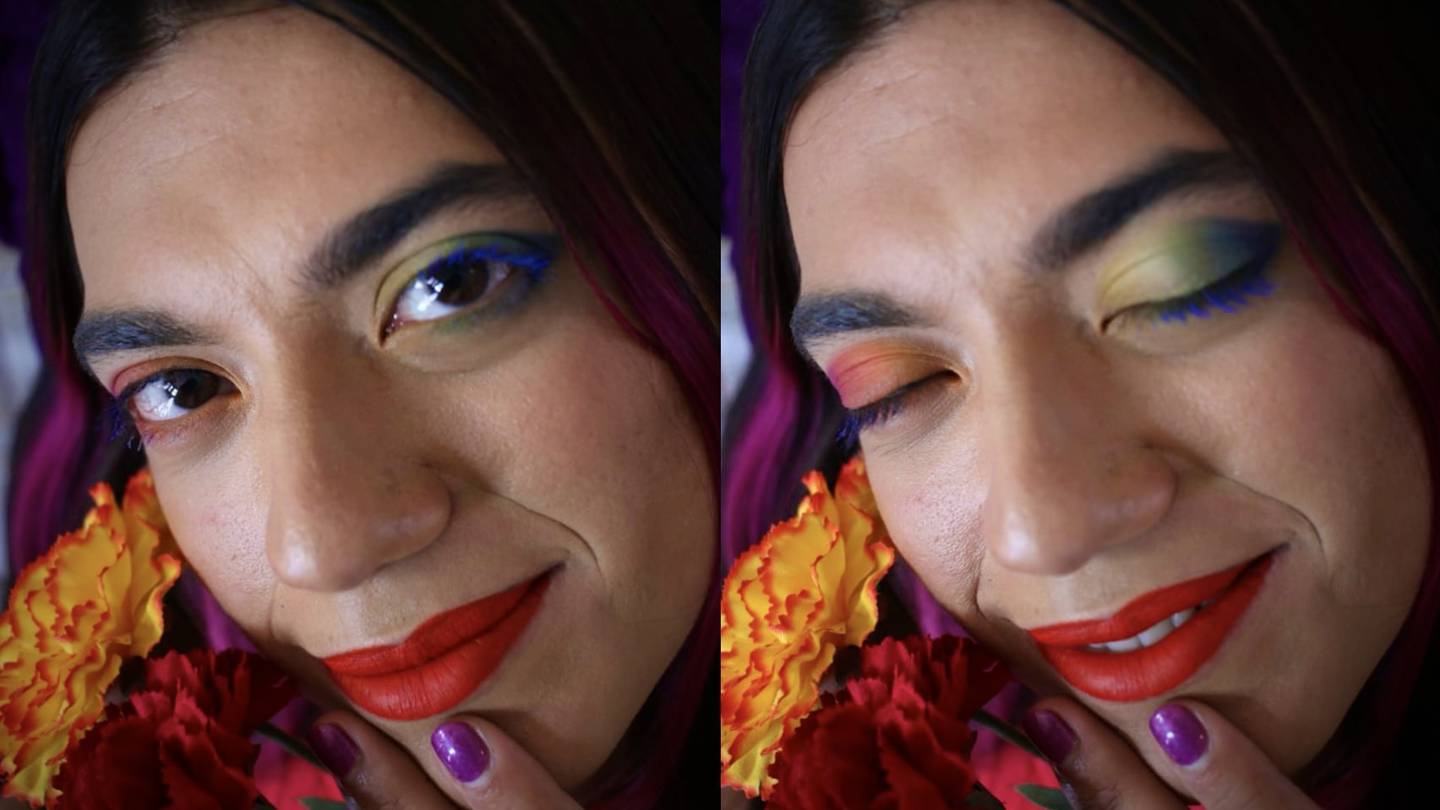June 28 is the International LGBTIQ+ Pride Day (lesbian, gay, bisexual, transgender, transsexual, transvestite, intersex, queer); however, this Sunday the 26th, members of the community march through the streets of San José to celebrate diversity.
Within the same population, there are non-binary people, who do not fully identify as men or women, that is, who do not feel included within the gender binary.
Likewise, the non-binary community brings together neutral people, who partially identify as men or women and who “flow” between the different genders for certain periods of time.
To better understand this society that integrates the LGBTIQ+ community, The nation spoke with Jota Vargas, a non-binary activist, who served as a representative of the LGBTIQ+ community in the Presidential House during the government of Carlos Alvarado.
-What is the difference between registry gender and biological gender?
-There is a theoretical and philosophical difference between registry gender and biological gender, the registry gender is what the State records in its documents, so it has to be based on legality, it has to be based on the national and international human rights framework. In fact, the Inter-American Court of Human Rights and the Inter-American Commission recognized that trans and non-binary people have the right to change that data, just as we can change our marital status, our name and other civil data; the registration gender is also a fact that can be changed and that should not merely attend to the biological or anatomical conditions or situations of the human body.
“Birth-assigned or biological gender is based on what medical personnel assume based on genitalia.”
-How do you deal with criticism for your gender identity?
-Each person is unique, each person is different and, if we do not learn to live with diversity, with differences, we will not live in society and this not only when we talk about gender identity or gender expression, but also about thoughts political, in religious opinions, and in a lot of other different branches of the personality and identity of each person.
“I think we also have to understand that there is diversity in spiritualities and there is diversity in religious convictions and that is also very important because there are theological movements such as queer or feminist theology. For example, queer theology teaches us that God created diversity, why? Because diversity is in nature, it is in animals, it is in plants and it is in people too”.
-How to learn more about this topic?
-There is evidence that, for example, in the Americas there were people called “two spirits” and they were people who brought together both spirituality or masculinity energy and spirituality or feminine energy. They were people who were seen in society with great respect, because spiritually they were on another level. They were people who dedicated themselves to being shamans or to giving advice in the indigenous community.
“I think the most important thing is to ask, when we are in front of a non-binary person, to feel confident or respectful to ask in good faith, ‘excuse me what can I call you, excuse me how can I refer to you’, I I think asking is not wrong. The other thing is to share knowledge, when you already have knowledge about a topic, sharing it allows other people to get closer and learn about that important topic”.
-At what point does a person identify as non-binary?
-Gender is a socialization that we learn as we grow up, so there are experiences of non-binary people who knew from childhood that something did not fit, that something did not click, so when they were told that you had to behave in a way because you are male or female did not resonate.
“Many people in our childhood or adolescence did not have access to information and we did not know what we are. We do know what we are not, but we do not know what we are. So finding the label of non-binary people allows people to identify themselves and stop that worry, that anguish, that anxiety of not knowing what they are.
[ Personas no binarias pueden registrarse como género ‘X’ en sus pasaportes ]
“There are people who say, for example, that they always felt good at home, but when they got to school there was a shock because the teacher said: ‘No, what are you doing with the group of girls? You have to be with the group of boys’. There are even non-binary people who say they didn’t go to the bathroom all day because they didn’t feel good in the men’s or women’s bathroom.
“Here we are also talking about a health issue, public policies around the recognition of the gender identity of non-binary people goes beyond a ‘simple whim’ as some have said, but rather allows non-binary people They have legal recognition and we can demand other rights such as being able to go to the corresponding bathroom, a neutral bathroom, a cabin where we can go and not suffer any type of discrimination or reprisals.”
-What should Costa Rica improve for the non-binary population?
-I think that Costa Rica has already advanced, already having an x in the passport seems to me to be a very important advance and I also feel that it is a process. Just as the law that recognized the rights of people with disabilities was approved and bathrooms began to be required according to their needs, I believe that they should also begin to demand neutral bathrooms.
-What goals are missing for the non-binary gender in the country?
-There are many things missing. The possibility that people, in all documents that mention the registration gender, may indicate that they are non-binary people must be recognized at the public administration level.
“In educationFor example, segregation by gender continues to exist. It is very important that activities are carried out that do not segregate by gender. I believe that men and women can be in the same row or different categorizations can be made, for example, ‘people who meet from January to June here and those who have their birthday from July to December here’, there are different forms.
“In the matter of Health, non-binary people should have the right to hormones or hormonal treatments of low or intermediate doses. So far we do not have access to these treatments.
Non-discrimination is also important. in our work, because many times we are discriminated against because of the way we dress or the way we see ourselves. There are even many regulations that are quite binary, there are uniforms for men and uniforms for women. There should be, for example, another uniform that fits according to the proportions of the body, or what people choose. If people want to wear a skirt, they can wear it.”
-Is there a support group for the non-binary population?
-Currently there is a collective called No Binarie Costa Rica, we are on Instagram as Nobinarie.cr, where we can refer to our communication channels and stay in touch for future activities.
[ LGBTIQ+: Qué son las terapias de conversión sexual + testimonio de un joven que sobrevivió a estas torturas en Costa Rica ]


